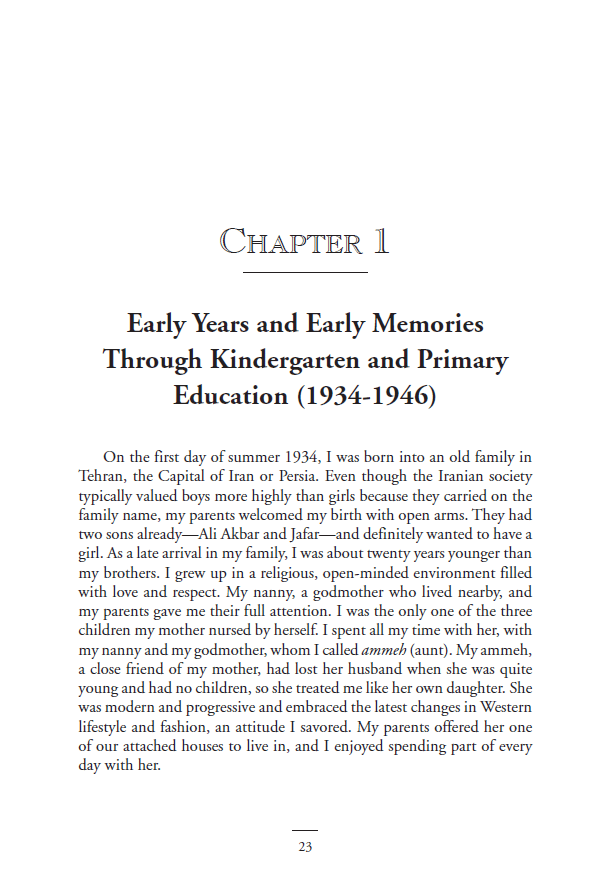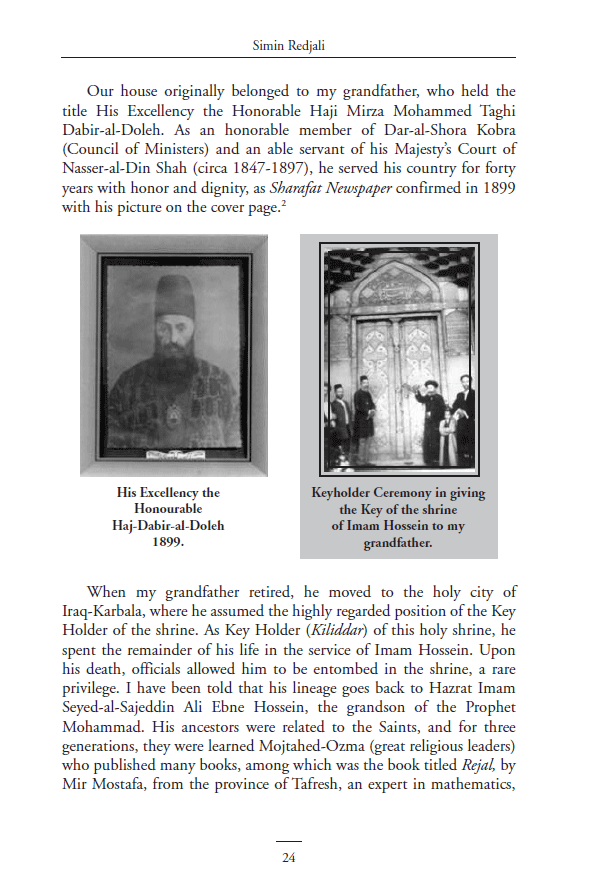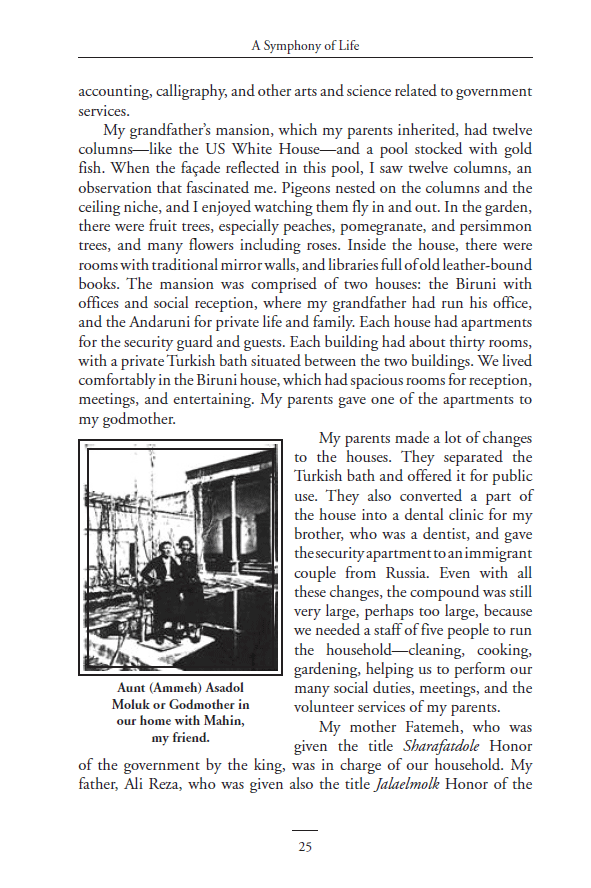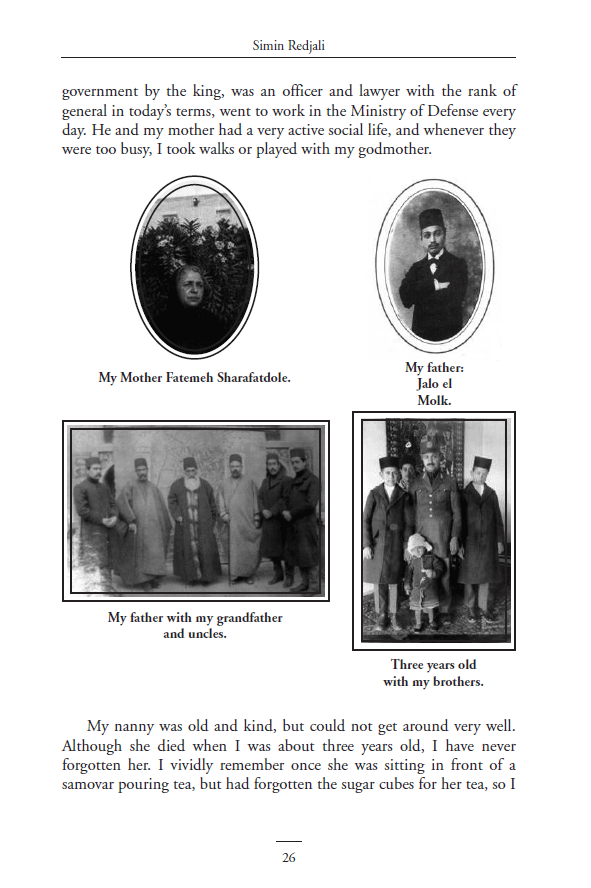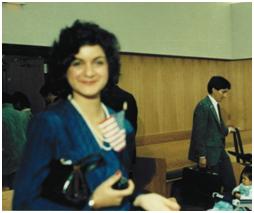Navigate Here
Excerpt
Page Excerpt
A Symphony of Life : Featured in Xlibris Blog by Maricel – Part 1
Aware of gender inequality issues in her native land Iran, Xlibris author Simin Redjali Ph. D. has armed herself with good education to spark positive change in both Iran and the US. She and her family became US citizens in the 80s, thus beginning her significant realizations and life-changing journey.
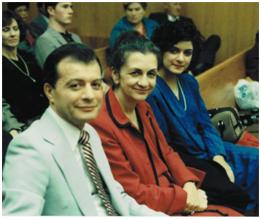
Xlibris author Simin Redjali (in the middle) with her husband Dr.Said Khadiri and daughter Gita Khadiri.
What it means to me and my family to be citizens of the US
Our family citizenship was completed on July 4, 1986 at historic Monticello. Members of the Daughters of the American Revolution welcomed us with a flag of our new country and a Manual for Citizenship which included all the information necessary for a new citizen- from the early history of America to the Declaration of Independence, the Constitution, Bill of Rights and the Pledge of Allegiance and other useful information that I still refer to today. After the ceremony, we left Monticello and returned home to Lynchburg to celebrate with typical food of our two countries and finished with a cake made by a friend in the shape of a Map of the United States, which they asked us to cut while singing the national anthem.
One of my colleagues, a member of the Daughters of the American Revolution, invited me to address her chapter in Brookneal on the subject “What it means to me and my family to be citizens.” I was proud to accept and on April 6, 1987, the 200th year anniversary of the Constitution, I spoke at the regular meeting of the chapter. The speech was good enough for the Brookneal Union Star to publish it with the headline “New American Describes What It Means to Her and Family to be Citizens.” I described the developments that led to my decision to become an American citizen explaining that I first came across America through my textbooks in school. My first feelings toward America were those of awe and admiration, for my textbooks painted a picture of a trouble -free land where freedom and equality were as native to its people as was my quest to establish these American ideals in the country of my birth, Iran.
As a young woman, I was aware of the inequalities and lack of rights that existed in Iran, particularly towards women. Therefore, my aim was to promote the image of women in Iran crushing the image of women as helpless, weak and uneducated human beings. Now, when I look back, I realize that my dreams were not unlike those of our founding fathers whose concern was for all Americans to reap the benefits of freedom and equality. I wanted every Iranian woman to have the opportunity to excel in her own right and to never be denied the opportunity to fulfill her dreams because of her sex. I found that the best weapon to fight injustice was a good education and hard work. Therefore, I concentrated on excelling in my studies by receiving my Ph.D. from the University of Heidelberg in Germany, a post doctoral from the University of London, and going on to become the first woman professor at the National University of Iran.
A Symphony of Life : Featured in Xlibris Blog by Maricel – Part 2
On this second installment of Simin’s Xlibris Blog, the author narrates how she encounters a fork in the road that led her to a land where she discovered true freedom.
Embracing freedom
In the summer of 1966, the United States National Science Foundation offered me a fellowship at the University of Michigan, an opportunity for me to finally visit the country I had read so much about. As you know, 1966/7 was a time of unrest for America as the Civil Rights movement was surging ahead. As a foreigner, I was shocked to find that the America I had idealized for so long, was in a state of upheaval because of discrimination and prejudice that seemed to question the principles of equality and freedom which had been so firmly expressed in the Constitution and the Declaration of Independence. I returned to the United States the next year as a Fulbright Scholar visiting professor and was impressed to find that the American people were even more ardently supportive of the Civil Rights movement than the previous year.
Inspired by the magnitude of reforms that were taking place in the United States, I returned to Iran convinced that Iranians could also overcome their prejudice against working and educated women. Thus, I became involved with the women’s rights movement in Iran, finally being elected Secretary-General of the Women’s Organization of Iran in 1969. From 1969 to 1971, I established and supervised more than 150 Family Welfare Centers (House of Women) throughout Iran. Although proud of the family welfare systems, I felt that the country needed a firm education base geared towards strengthening these special centers. Therefore, I established Shemiran College in order to offer specialized programs of pre-school education, family counseling, welfare administration and special education. There I served as president until 1979 when the Islamic Revolution broke out and the government shut down all educational institutions. The Islamic government proclaimed that it was no longer interested in what the universities and colleges had to offer since they believed that the Islamic teachings of the Koran were sufficient for Iran’s educational needs. After the return of Khomeini to Iran, it became clear that the government’s purpose was to oppress its people in the name of God, freedom and equality for all. Betrayed by my own government’s abuse of these sacred principles, I saw no alternative but to leave the country. We left Iran with 20 pounds of luggage, thinking that we might return when the hype had died down. Although we left with our dreams and with little to show for them, we left with a warm feeling, willingly accepting what was to be our new country, America.
When I reflected upon the bygone years, I thought of my visits to America where hearts were warm and spirits free, a land where freedom and equality were the underlying principles of its government and a country whose people had chosen to replace discrimination with love and understanding, and I knew America was the only place in the world where I would want to live and raise my children. Among other things, the American Constitution guaranteed its citizens that their rights to vote “shall not be denied or abridged by the United States or by any state on account of race, color or previous condition of servitude.” In fact, the Constitution and the Declaration of Independence guaranteed my family and me the many rights that the Iranian government did not consider important.
source: http://blog.xlibris.com/author-blogs/simin-redjali-part-2/
A Symphony of Life : Featured in Xlibris Blog by Maricel – Part 3
The Xlibris Blog gives you the final part of author Simin Redjali’s Blog. Here, she talks about celebrating freedom following her US citizenship approval.
US citizenship
Fortunately, my faith in the values of a good education paid off in the summer of 1979 when the United States government granted me permanent residence as a person of exceptional ability and international renown. I accepted my first job offer as Center Director at Lynchburg Training School and Hospital (now known as Central Virginia Training Center). After one year my whole family became permanent residents of the United States. As Center Director, I had the good fortune to work with a dedicated staff of approximately 220 people who cared for 267 developmentally disabled persons and was responsible for the implementation of appropriate policy and procedures of the Center in addition to organizing and managing the financial, physical and human resources of the staff in realization of center’s goals and objectives.
During those years, I had to make the difficult decision of whether to become a citizen of the United States. In order to become a citizen, I had not only to believe and accept the American way of life, but I also had to renounce my Iranian citizenship. The first part of my decision was simple, because accepting the United States as a new home had already taken place in 1979. However, the test of being a U. S. citizen was not in loving this new country, but in renouncing the one that had been a part of my life for so long. Becoming a citizen does not just mean a new home. To me it means accepting the founding principles of this country that are so similar to the principles I fought for in Iran for many years. It means living in a country where my son, Reza, can realize his dreams and my daughter, Gita, hers of being a lawyer. When I asked, Gita, how she would summarize why she wanted to become a U. S. citizen, she spoke from my family’s heart when she said “good citizenship does not mean a passive acceptance of laws and rights our founding fathers gave us two centuries ago, but rather demands an active acceptance of these endearing values by taking the responsibility to uphold the principles as stated in the Declaration of Independence and Constitution of the United States.”
We thank you, Xlibris author Simin Redjali, for gracing the Xlibris Blog with your inspiring advocacy and literary journey! May you be a shining example to women not just in your homeland, but all over the world.
source: http://blog.xlibris.com/author-blogs/simin-redjali-part-3/





